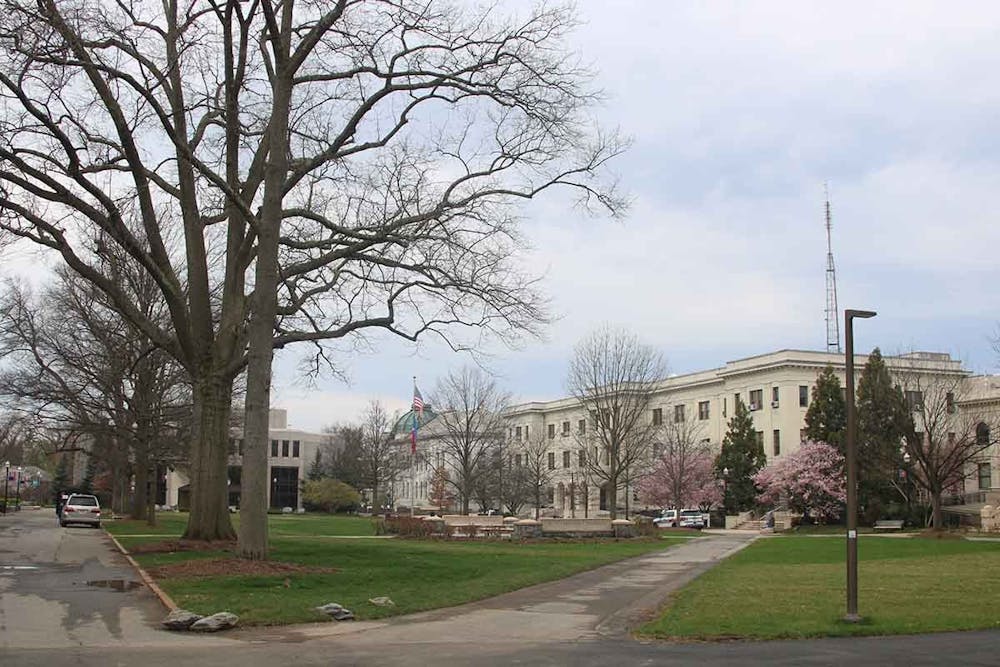As a continuation of American University’s Inclusive Excellence plan, AU will allow students to indicate their chosen name and pronouns in the University’s technological systems, officials announced during a student media briefing on Feb. 2.
This system change, while still a work in progress, is a step toward a more expansive way of letting students dictate how they want to be referred to in class and University settings. Students have the choice of indicating their chosen name in programs that they are comfortable with, including, but not limited to, platforms like Blackboard, Canvas and Eagle Service.
“The AU community is strengthened by the diversity within it. AU recognizes that students may use names other than a legal name to identify themselves,” the University’s website states, along with outlining steps for making changes.
AU’s Name and Gender Identity tech pilot allows students to change their name in the University’s systems without requiring a legal name change.
This policy update was developed over the course of a year and a half, said Amanda Taylor, the assistant vice president of Diversity, Equity & Inclusion at AU. Throughout the creation and development of the policy, Taylor said that one of the main priorities was making sure everyone is represented.
Prior to this update, students had to manually change their names and pronouns in a variety of systems. Now, the change only has to be made once, and professors and administrators will automatically see students’ appropriate names and pronouns.
President Sylvia Burwell’s 5-year Inclusive Excellence plan, launched in 2018 following a racist hate crime, is a framework designed to promote accountability for change throughout AU.
“It is a key feature of the second phase of our inclusive excellence work at AU,” Taylor said. “Which officially started this academic year, and we’ll [eventually] roll [it] out to the whole community.” This will occur after a period of testing and seeing where improvements can be made, Taylor said.
Certain protections have been put in place to prioritize students, such as chosen names and pronouns not appearing on any documents that might be sent home. This is to prevent the University from outing a student to their family, Taylor said, while the specifics are still being tested.
Max Miller-Edwards, executive director of AU Pride, was involved in some of the testing of the systems change.
“It wasn’t very complicated, just like looking at various things and being like, ‘okay, cool, it’s showing the right name,” said Miller-Edwards, who doesn’t go by their birth name.
Accountability within the University and its communities are one of the most prominent themes of inclusive excellence, Taylor said.
“[Inclusive excellence] is a plan for how we systematically approach many different actions, and how we kind of organize our thinking around the actions,” Taylor said. “It’s how we make visible our commitment and our accountabilities.”
To successfully roll out a program such as Name and Gender Identity, collaboration between many offices and organizations is required, in addition to feedback from students and faculty, Taylor said. Reprogramming many AU systems is also necessary, which is something that is still in progress.
While the process is not yet clear due to the plan still being in its early stages, faculty, staff and AUPD will all undergo training with this new update to, in part, learn how to refer to students respectfully in all settings.
To Miller-Edwards, this is “a good step” toward inclusivity on campus, although more improvements still need to be made.
“[We need to] definitely see more with professors understanding queer issues,” they said. “I’ve heard a lot of stories from students about having negative experiences with professors. I feel like while there is change happening on an administrative level it also needs to happen on an individual level.”
For Taylor, systemic changes reflecting the inclusivity of AU is one of the main goals of inclusive excellence overall.
“For me, it’s a part of reprogramming our systems intentionally and affirmatively,” Taylor said. “How do we make sure we're intentional about that at every level? This is just one piece of a broader set of structural changes that are underway.”




